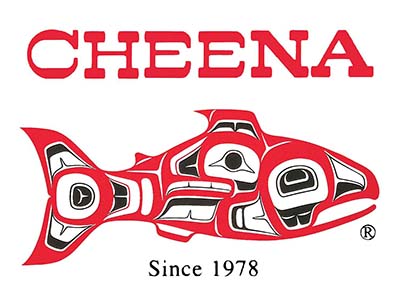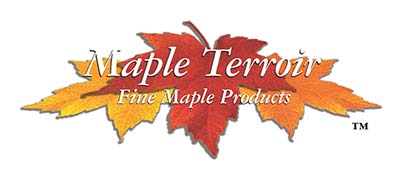When people think of Canada, two culinary treasures often come to mind: rich, golden maple syrup and wild, pristine salmon. More than just exports, these delicacies are woven into the national identity. Maple syrup, harvested from the sap of sugar maple trees, has been part of Indigenous and Canadian traditions for centuries. Its deep amber hue and complex sweetness evoke images of snow-covered forests, cozy log cabins, and breakfasts by the fire—iconography that has made it a symbol of Canadian hospitality and nature’s abundance. Meanwhile, Canadian salmon, especially wild-caught from the Pacific, is prized globally for its firm texture and clean, buttery flavor. It speaks to Canada’s vast wilderness, cold unspoiled waters, and sustainable fishing heritage.
In Japan, where culinary precision and seasonal appreciation define the food culture, these products have found a devoted following. And for nearly five decades, few have championed this culinary connection more passionately than Shawn Lytton, President of Cheena Canada Ltd. and Maple Terroir Products Ltd.
Shawn’s story is deeply personal—and deeply binational. His mother, from Kyoto’s historic Fushimi district, and his father, a Canadian from Nanaimo, British Columbia, met as university students in Japan. His father had received a Rotary scholarship from the University of British Columbia to study at Keio and Kyoto University, where their paths crossed. What began as a cultural exchange blossomed into a love story that would eventually shape a legacy of international entrepreneurship.
After returning to Canada, the couple settled in Vancouver and opened a modest shop downtown. They noticed a surprising demand among Japanese tourists for gift-ready Canadian smoked salmon—something attractively packaged, not just whole fish from Granville Island. Seizing this insight, they began processing wild Canadian salmon into sleek, travel-friendly formats. Soon after, maple products were added to their range—another beloved Canadian staple that resonated deeply with Japanese consumers. By 1979, just a year after founding Cheena Canada, they had launched Cheena Japan and Maple Terroir, exporting these two quintessentially Canadian products to Japan and supplying duty-free shops, supermarkets, and department stores on both sides of the Pacific.
Today, Shawn and his son—the third generation—carry this legacy forward. Their story isn’t just one of business success, but of cultural harmony: how a biracial family, born of love and mutual respect, intuitively understood a niche in the market that could only be seen from both Canadian and Japanese perspectives. Their journey illustrates the very essence of cross-cultural entrepreneurship—where heritage becomes insight, and family becomes the bridge between nations.
In this exclusive interview with Bridges Magazine, Shawn reflects on his family’s journey and how a love story that began in Kyoto became the foundation for a business bridging cultures, generations, and markets.
Bridges: Your parents founded Cheena in 1978 with a vision of sharing the pristine beauty of Canada through products like wild salmon and, later, maple goods under the Maple Terroir brand. How would you describe the legacy they’ve built, and how has your family stayed true to that original spirit nearly five decades later?
Shawn Lytton: Even at my tender age, I often think about what my parents sacrificed when I was growing up. When they started Cheena Canada in 1978, and Maple Terroir the following year, they persevered through 16 to 18-hour days, seven days a week—driven by unwavering work ethic and dedication. As a youngster helping them out, I learned never to compromise on quality, to always be grateful to the customers who chose our brand over others, and to give back to the community.
Since 1978, we’ve been fortunate to continue supporting local organizations and proud to carry on our family’s long-standing tradition of producing delicious, made-in-Canada products that people can truly enjoy with family and friends.
Every time we receive emails and reviews from customers around the world, I feel inspired. Their feedback reminds us to push even harder—not to cut corners with artificial additives or cheap, imported ingredients just to lower costs. We’re committed to using the finest local ingredients to stay true to our values, maintain our customers’ trust, and, in turn, hope they stay loyal to us.
Cheena and Maple Terroir have both expanded their product ranges over the years. How have you adapted to changing tastes and global trends, and which products today are the most popular among Canadian locals as well as your international customers?
We listen to what our customers have to say, which ultimately affects the taste profile and packaging design of our products. Of course we study the market trends to get an overview but when it comes to the small details, we listen and implement. For example, we had many customers asking us to use local and natural ingredients. For smoked salmon, we use wild, non-farmed Canadian salmon, smoked using traditional methods. For our maple products like popcorn, we use proudly Canadian-grown corn—not imported. And for our cookies and stroopwafels, we source our flour from Canada, not overseas. Whenever possible, we focus on ingredients that are both grown and made in Canada.
Our most popular seafood product is our shelf-stable retort smoked salmon, which does not require refrigeration. We take pride in our process, which allows the salmon to remain moist and tender on its own. At Maple Terroir, our maple cookies and stroopwafels have consistently performed well, thanks to the use of natural ingredients that keep them from being overly sweet.
Over the years, I’ve come to understand the need to wear two hats—one to grasp the capabilities of the Canadian standard, and the other to uphold the demands of the Japanese market.
Shawn Lytton, Director at Cheena Canada Ltd., Maple Terroir Products Ltd.
Japan has been a key market for Cheena, especially given how salmon has risen to rival tuna in popularity for sushi and sashimi. How did growing Cheena’s presence in Japan influence your own development as a leader, and what have been some of your proudest milestones there?
Since penetrating the Japanese market decades ago, we’ve always been challenged to improve our quality and service to meet the Japanese standard. The only way to achieve this was by pushing myself and those around me to think and act alike. Over the years, I’ve come to understand the need to wear two hats—one to grasp the capabilities of the Canadian standard, and the other to uphold the demands of the Japanese market. This combination allows us to create high-quality products with the attention to detail and care that the Japanese require. Our experience in both markets not only sharpens our capabilities, but also positions us to thrive in other global markets.
We truly believe we are pioneers in our particular segment of Canadian food products. One big milestone is the fact that we are still standing strong. We feel that to do business in Japan for this long, we must be doing something right—and for that, we are proud and grateful.
As Cheena and Maple Terroir approach the 50-year mark, with a third generation already heavily involved, what are you and your family most proud of when you look back at your journey — from a small Canadian family business to an international ambassador for Canadian quality and nature?
Operating a family business is never easy. We’ve faced our share of challenges—most recently, the impacts of COVID-19, fluctuating exchange rates, and tariffs that now affect us indirectly. But through thick and thin, our family has navigated it all. As we continue working in partnership with one of the world’s most demanding markets, we believe Japan is worth every effort. It remains close to our hearts, and we’ll continue to honor that relationship with dedication.









